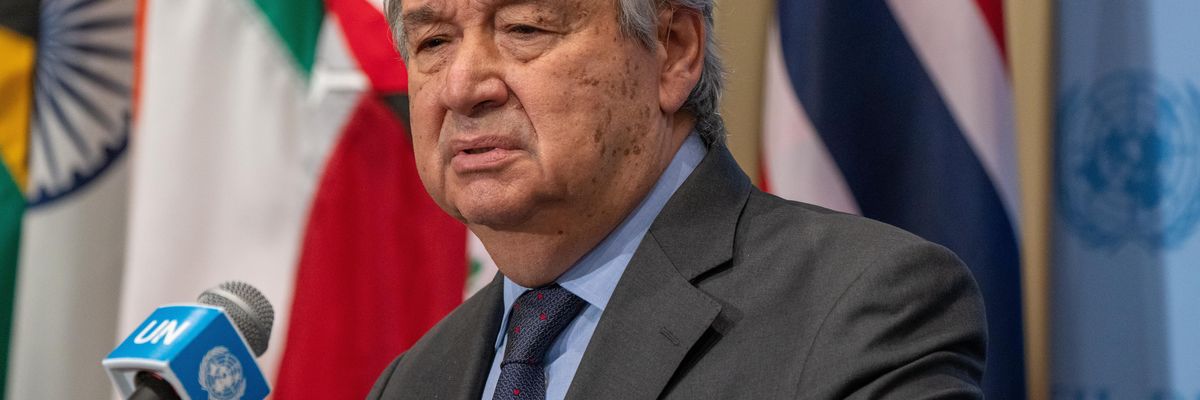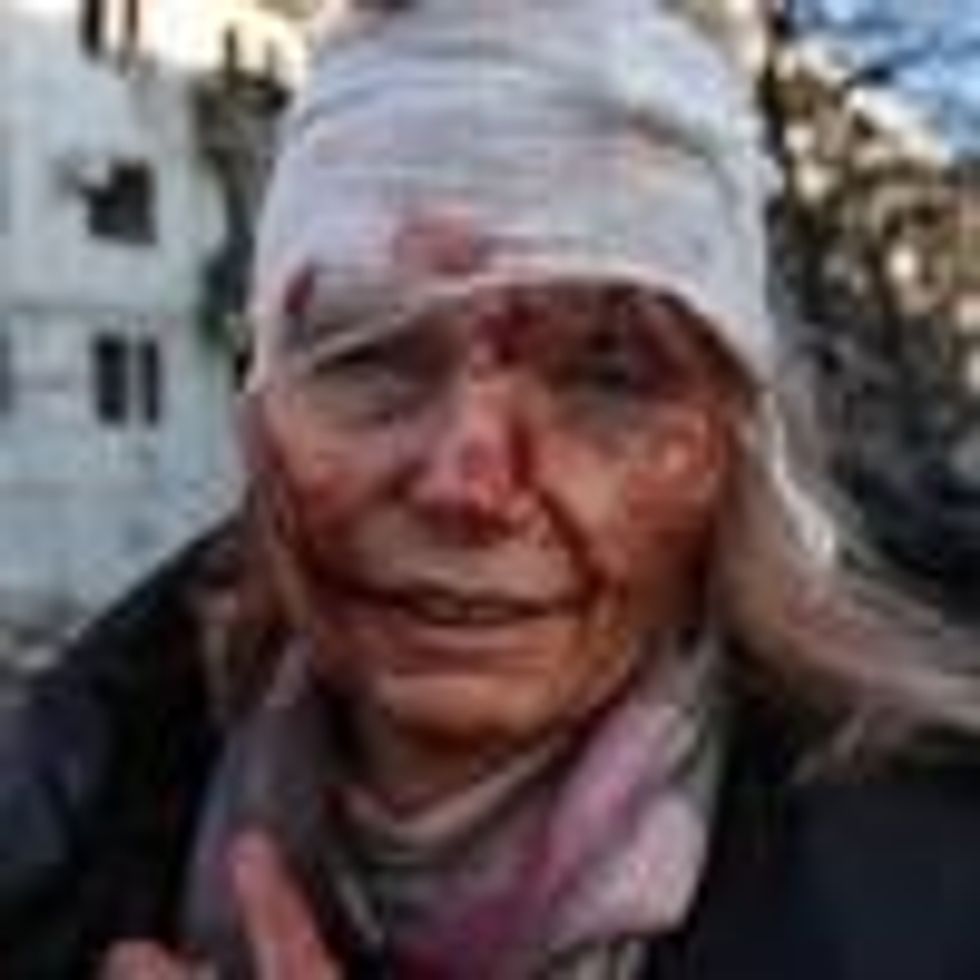In response to the Russian military's invasion and bombing of Ukraine, United Nations Secretary-General Antonio Guterres on Thursday reiterated his call for peace, pleading with the Kremlin to withdraw its troops and avoid a full-blown war that would have devastating consequences worldwide.
"The decisions of the coming days will shape our world and directly affect the lives of millions upon millions of people."
"We are seeing Russian military operations inside the sovereign territory of Ukraine on a scale that Europe has not seen in decades," Guterres said in a statement. "I have been clear that such unilateral measures conflict directly with the United Nations Charter," which states that "all members shall refrain in their international relations from the threat or use of force against the territorial integrity or political independence of any state."
"The use of force by one country against another is the repudiation of the principles that every country has committed to uphold," said Guterres. "This applies to the present military offensive. It is wrong. It is against the Charter. It is unacceptable. But it is not irreversible."
The U.N. chief echoed an appeal he made Wednesday night as Russian President Vladimir Putin launched his far-reaching assault on Ukraine: "Stop the military operation. Bring the troops back to Russia. We know the toll of war."
"With deaths rising, we are seeing images of fear, anguish, and terror in every corner of Ukraine," Guterres continued. "People--everyday innocent people--always pay the highest price."
Related Content
Human Rights Groups Warn Against Civilian Harm Amid Russian Attack on Ukraine
Kenny Stancil
Guterres announced that the United Nations is ramping up its humanitarian efforts "in and around Ukraine," including a swift disbursement of $20 million from the Central Emergency Response Fund to address pressing needs.
"The protection of civilians must be priority number one," said the U.N. chief. "International humanitarian and human rights law must be upheld."
He emphasized that "the decisions of the coming days will shape our world and directly affect the lives of millions upon millions of people."
"In line with the Charter, it's not too late to save this generation from the scourge of war," said Guterres. "We need peace."
As Common Dreams reported earlier Thursday, more than 1,000 anti-war protestors in Russia were arrested for marching against Putin's attack on Ukraine.
On Thursday morning, The Nation's editorial director and publisher Katrina vanden Heuvel, writing on behalf of the progressive magazine, urged "all parties to immediately cease hostilities, deescalate, and seek a diplomatic solution to mitigate the risk of full-scale war and an unthinkable direct conflict between the world's two largest nuclear powers."
She continued:
The Nation has consistently called on all parties to the crisis in Ukraine to seek resolution through diplomatic means, respecting international law and international borders. Putin's actions are indefensible, but responsibility for this crisis is widely shared. This magazine has warned repeatedly that the extension of NATO to Russia's borders would inevitably produce a fierce reaction. We have criticized NATO's wholesale rejection of Russia's security proposals. We decry the arrogance that leads U.S. officials to assert that we have the right to do what we wish across the world, even in areas, like Ukraine, that are far more important to others than they are to us.
NATO expansion provided the context for this crisis--a fact often ignored by our media. There is rank irrationality and irresponsibility in offering future NATO membership to Ukraine--when successive U.S. presidents and our NATO allies have demonstrated that they do not have [the] slightest intention of fighting to defend Ukraine. Instead, Putin's demand that Ukraine remain outside of NATO--essentially that the status quo be codified--was scorned as violating NATO's "principle" of admitting anyone it wanted.
"What is needed is not a rush to arms and to hawkish bluster but a return to intense negotiations--at the U.N., at the Organization for Security and Co-operation in Europe, and among the signatories to the Minsk Protocols," vanden Heuvel argued. "It is time to recognize that there remain options that, if pursued in good faith, could bring the current crisis to a peaceful conclusion."


